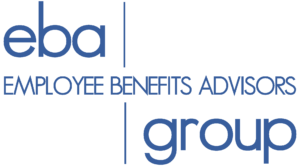Retirement Planning Beyond Investments

Most people think about retirement planning in terms of saving money so they can afford to retire. As a long-term care insurance specialist, my role is to protect that money when they do retire. And long-term care insurance is one way to do that.
As you might imagine, my conversations with clients often delve into a variety of issues related to their retirement. For example, many seniors worry about becoming unable to perform the activities of daily living. Most people do not want their children taking care of them, but they often fail to realize that their spouse may not be able to either. (Imagine a frail 75–year-old woman trying to hold up a 250 lb. man while he showers?) They wonder if they will be able to stay in their current home or would have to renovate or move.
A Home That Suits Your Lifestyle
For the most part, people want to remain in their homes as they age, whether it is the one they are currently living in or a smaller, more convenient place. In fact, finding the right home with the right amenities, both inside and outside, is one of the keys to a happy retirement. Whether you are considering living in an active adult community, assisted living facility, a new home, or in your existing home, the decision-making process can be confusing and overwhelming.
Having the right partners in place will make it all easier. So, I’ve reached out to two specialists in these areas – Cory Waters and Mark Richards – to explore some of the options for those looking to downsize or move to a more senior-friendly home.
Navigating a Sea of “Smart” Choices
I want to stress that when it comes to finding a senior-friendly home, it is essential to work with a real estate broker who understands the special needs that many seniors have. Cory can guide you through the process of selling your existing home and/or purchasing a new home that fits your lifestyle and needs.
Technology and construction practices have evolved over the years to ensure older adults have what they need to live safely and comfortably at home. This includes everything from doorways wide enough for wheelchairs to lower kitchen/bathroom counters and ramps instead of stairs. The basics of installing grab bars in the right places or having the master bedroom and bathroom on the first floor can greatly improve your quality of life.
For seniors who will be living alone, equipping your new home with Smart devices can ease your mind and give your loved ones the assurance of knowing you are safe. Did you know that your existing home can be outfitted with Motion Activated monitoring, voice command recognition to do daily tasks, and controls to adjust the lighting or blinds – without you having to leave your favorite chair? These options can also be built into your new home.
Living alone is an option for seniors who want a sense of freedom, but an assisted living facility might be the right option if you are looking for a sense of community. There are different levels of assistance available – from independent living to assisted care – and Cory can advise you on the option that is right for you.
What about Financing Your Next Step?
Traditionally, a home buyer secures a mortgage to fund a property and works with an accomplished loan officer like Mark to get them the best rate and financing terms. As the mortgage is paid, the equity in the home increases as well as the property appreciating in value. This is a win-win for most homebuyers.
Unfortunately, seniors often have a difficult time qualifying for a traditional mortgage. The primary reason for this is that their retirement income is not sufficient to meet the rigid debt-to-income guidelines. As a result, they may be forced to either buy less home than they would like; use a substantial amount of cash reserves to purchase the home; or lose hope of being able to purchase a new home at all.
HECM’s: A Strategy for Seniors
Fortunately, there’s a solution: an interesting use of FHA’s Home Equity Conversion Mortgage or HECM, the most commonly-used reverse mortgage loan. Mark specializes in counseling individuals and couples on different strategies and which is the best use of this vehicle for them. Imagine obtaining the home you want without paying all cash!
I recently found out how to buy a home without having the mandatory monthly principal and interest payment of a traditional mortgage. A couple who wanted to downsize sold their home and put 50% down on a new home. They used the HECM to provide the other 50%, essentially living mortgage-free!
Homeowners are always responsible for all property charges (property taxes, homeowners’ insurance, flood insurance, condo or homeowners association (HOA) dues, etc.). However, not having a mandatory principal and interest payment gives homeowners more flexibility to put their monthly income where it best meets their needs and desires.
Mark works with couples to right-size their retirement home, whether they are purchasing it or already living there. Sometimes the new home is in a more expensive area and getting the amenities they want costs more than their former location. When utilizing the HECM for purchase, seniors have been able to acquire their dream home while putting leftover proceeds from the sale of their previous home into their savings, further securing their retirement. Mark recently employed this strategy with a family member who told him she sleeps better not having that extra outlay of money from a standard mortgage.
When it Comes to Retirement, There are No Do-Overs
Partnering with professionals who specialize in working with seniors will help ensure you make the most of your “golden years.”
Patti Goldfarb can be reached at Employee Benefits Advisors Group, pgoldfarb@ebagroup.net or 201-255-6239.
Cory Waters, Residential Realtor at RE/MAX, can be reached at cory@bergenhouses.com or 908-797-5745.
Mark Stephen Richards, Loan Officer / Retirement Mortgage Specialist at Fairway Independent Mortgage Corporation, can be reached at mrichards@fairwaymc.com or 201-679-2734.

